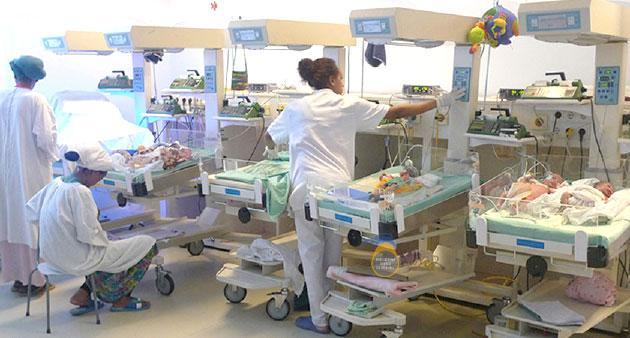Africa-Press – Eritrea. Blood Transfusion Service
The National Blood Bank Service (NBBS) has ensured the availability of blood across the country and the safety of transfusions for patients by developing guidelines, training healthcare professionals, conducting public awareness campaigns, and equipping itself with modern technology. To guarantee the safety of all blood donated, the NBBS conducts quality testing on 100% of the donated blood. Ninety-nine percent of this life-saving blood is donated by volunteers, with approximately 50% coming from regular donors. The Blood Donor Association plays a crucial role in persuading people to be donors.
The NBBS has become one of the few blood banks in Africa to achieve international accreditation, which it did in 2010 and 2013. As the NBBS has advanced in terms of its professionals’ capacity and its equipment.
In 2013, the Gash Barka region established its own regional blood bank service with the assistance and oversight of the NBBS.
Physiotherapy Services
Physiotherapy services are critical for restoring and normalizing skeletal, muscular, circulatory, cardiovascular, and orthopedic functions. Physiotherapy addresses abnormalities or disabilities caused by accidents, injuries, or other conditions. Physiotherapists work closely with doctors, nurses, laboratory technicians, and X-ray specialists to help patients regain normal bodily functions. A key objective of physiotherapy is to prevent permanent disability and minimize future risks.
In terms of human resource development, the first group of 12 health professionals was trained at the physiotherapy level in 2002 and deployed to health facilities in the regions. Building on this foundation, a new curriculum was developed in 2011 with the assistance of the College of Health and Technology, a strategic investment that significantly boosted the number of physiotherapists from a mere 6 in 1991 to 140 by 2020.
Intensive Care Units
Efforts to establish and enhance infant and child intensive care units (ICUs) have significantly increased since 2012. These critical services had in the past been available only at Orota National Referral Hospital. Now, ICUs for infants and children have been established in 16 of the 28 hospitals, covering 57% of the facilities in the country. This expansion has proven highly effective in reducing the mortality rate of vulnerable infants.
Cancer diagnostics and treatment service has officially commenced in Asmara. This crucial development represents a major step in enhancing the capacity of specialized medical care available in the country. Previously, access to comprehensive cancer diagnostics and treatment was often limited, necessitating referrals abroad for many patients. Now, with the establishment of these services, patients can receive specialized care closer to home.
Ophthalmology Services
Eritrea’s ophthalmology services have advanced significantly, marked by substantial growth in infrastructure, an increase in specialized ophthalmic personnel, and the introduction of cutting-edge ophthalmic equipment and technology. All ophthalmic hospitals are now equipped with a full spectrum of medical devices, from advanced diagnostic imaging systems like optical coherence tomography (OCT) and fundus cameras to specialized surgical microscopes and phacoemulsification units for cataract procedures, all deployed on the basis of clinical requirements.
The government gives priority to the development of human resources across all sectors. As part of this commitment, many eye care professionals have been trained domestically, with some individuals also pursuing advanced subspecialty training abroad through collaborations with universities and other institutions. These ongoing initiatives have bolstered the ranks of various eye care specialists, including ophthalmologists (with in-country education now complementing advanced training received overseas in areas such as vitreoretinal surgery or glaucoma management), a steadily increasing number of ophthalmic officers who play a crucial role in primary eye care and surgical assistance, a growing pool of ophthalmic nurses through continuous training programs focused on patient care and pre/ post-operative management, and an expanding contingent of optometrists whose continuous training enhances their ability to perform comprehensive refractive assessments and to manage common ocular conditions.
Significant progress has been made in modern cataract surgery. While various procedures were performed before independence, the National Ophthalmic Referral Hospital, in collaboration with external experts, has provided training in the most advanced and modern surgical techniques. Eye treatment referral hospitals have been established across all regions, ensuring that proper eye care services are accessible. These institutions are well-equipped with essential eye disease screening tools and provide comprehensive eye surgery services. A wide array of major and minor surgical services, including various types of cataract surgery, are available at all eye treatment facilities. Accidental injuries and complex conditions, such as severe glaucoma or cataracts that require surgical intervention that cannot be handled at the regional level are taken care of at the hospital by local and foreign professionals.
Addressing trachoma, which is the second leading cause of blindness in the country, is always given high priority. Extensive efforts that focus on prevention and control are underway in line with the WHO’s Trachoma Eradication Program for 2020. Since 2011, between two and six rounds of anti-trachoma drugs have been distributed in 25 subzones where active trachoma rates exceed 5%. During the distribution campaigns, village health representatives give mass education on trachoma, its transmission, prevention, and the importance of hygiene. Periodic evaluations, including studies on medicine distribution, are conducted in all the subzones of the regions to assess the program’s effectiveness.
Future Plans
The MoH has ambitious plans to significantly enhance healthcare service throughout Eritrea. Future key initiatives include the continuous expansion and enhancement of health services, aiming to improve both the reach and quality of care for all citizens. A major strategic focus is the upgrading of existing health centers to community hospitals in several key locations, including Haikota, Elabered, Hagaz, Aditekelezan, Dibarwa, Segeneiti, Areza, Tsaeda- Christian, Serejeka, and Foro. This move will substantially boost the capacity of local healthcare facilities. Additionally, the establishment of a dedicated cancer service unit is underway. This facility is being designed for extensive growth and will be fully equipped with the required resources to provide advanced cancer care.
For More News And Analysis About Eritrea Follow Africa-Press







